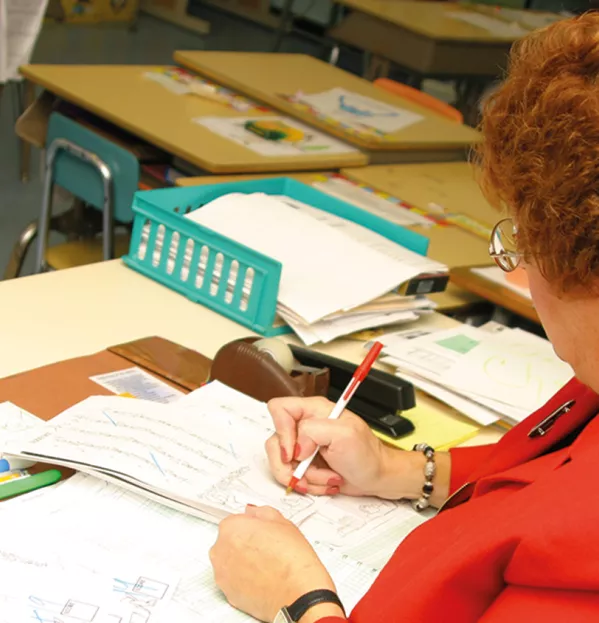Thousands more markers needed as reforms kick in

Thousands more teachers will need to become examiners to ensure that the system can cope with the significant challenges presented by GCSE and A-level reform, new research has found.
Teachers’ professional expertise as markers has become “more important than ever” in the wake of qualification overhauls, according to a report from a working group on building examiner capacity.
But many teachers are currently deterred from marking because of the workload, the unprofessional image created by piecework fees, and the fact that the role receives no recognition in the school accountability system.
‘Accurate and timely results’
Findings shared exclusively with TES reveal that approximately 41,000 teachers will need to serve as examiners by 2019 - an additional 7,000 teachers - to meet an increased demand during the summer period, when more exams will be taken in the wake of reforms.
The report, from the headteachers’ associations, Joint Council for Qualifications (JCQ) and exam boards, says that teachers’ participation is a “prerequisite to that system delivering the right results”. It argues more examiners are needed to ensure that accurate, timely results are not jeopardised.
Malcolm Trobe, interim general secretary of the Association of School and College Leaders, said: “We are obviously concerned, which is why we are supporting the plans to increase the number of examiners. The more examiners we have, the more security we give to the exams system.”
In 2014, exam board OCR had a near miss on delivering exam grades because of a shortage of markers and technology problems. After this, OCR targeted retired teachers by placing adverts in the pages of cruise ships’ onboard magazines and even considered recruiting markers based overseas.
‘The more examiners we have, the more security we give to the exams system’
“You have got to have enough high-quality markers to ensure all papers are marked to the required standard in the required time,” Mr Trobe said.
National teacher recruitment problems may also have a knock-on effect on future examiner recruitment, the report finds. In some subjects, like geography and English, exam boards already struggle to find enough examiners to cover the work.
“Since examiners can only be recruited from the available pool of practising and recently retired subject teachers, a shortage of teachers in a particular subject is also likely to cause a shortage of examiners in that subject,” the report says.
The working group has launched an online hub for examiners and two new award schemes - which will recognise exceptional individual examiners and schools’ contributions - as part of a series of commitments to attract and retain teachers into the exams system and to prevent a shortage.
Culture change
Dale Bassett, from the AQA exam board, who chairs the working group on building examiner capacity and culture, said: “Exam boards can always do more to improve and to pre-emptively address the challenges presented by qualification reform.
“The actions set out in this report should serve as the start of a renewed commitment by all to play our part in building the capacity for the future and ensuring that young people continue to receive grades that are a fair and accurate reflection of their work.”
The report, which is being launched officially on Monday, suggests that schools should do more to recognise examining as valuable teacher CPD and exam boards should improve training and simplify fee structures.
It also recommends that the new Chartered College of Teaching - which opened its doors to members this week - should become a centre of excellence in assessment, and that initial teacher training providers should introduce students to the idea that actively participating in examination can improve their professional practice.
But Mr Bassett added: “These solutions will only work if examination bodies, schools and teachers work together to implement them.”
School standards minister Nick Gibb said: “It is important that exams are marked to a high quality and standard. We welcome the work that JCQ, awarding organisations, and headteacher associations are doing to recognise the valuable role of examiners.”
You need a Tes subscription to read this article
Subscribe now to read this article and get other subscriber-only content:
- Unlimited access to all Tes magazine content
- Exclusive subscriber-only stories
- Award-winning email newsletters
Already a subscriber? Log in
You need a subscription to read this article
Subscribe now to read this article and get other subscriber-only content, including:
- Unlimited access to all Tes magazine content
- Exclusive subscriber-only stories
- Award-winning email newsletters